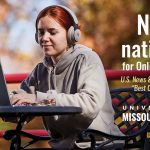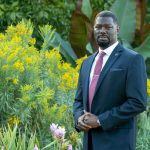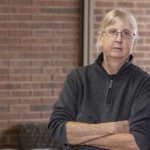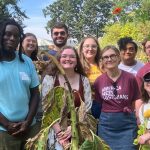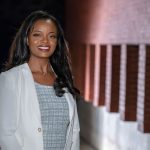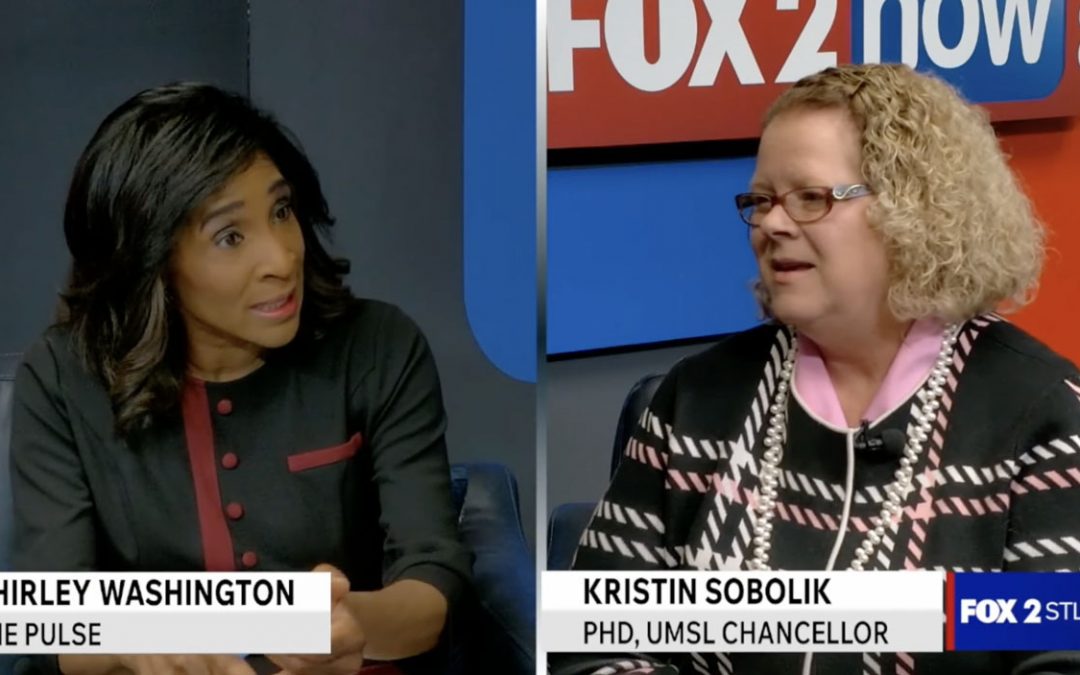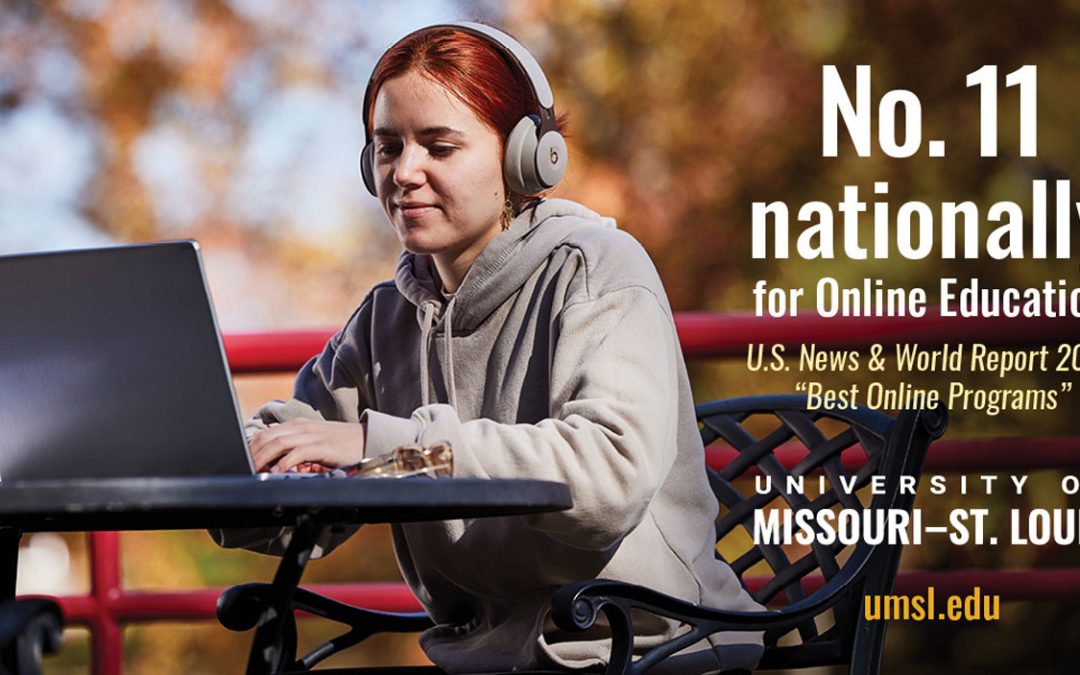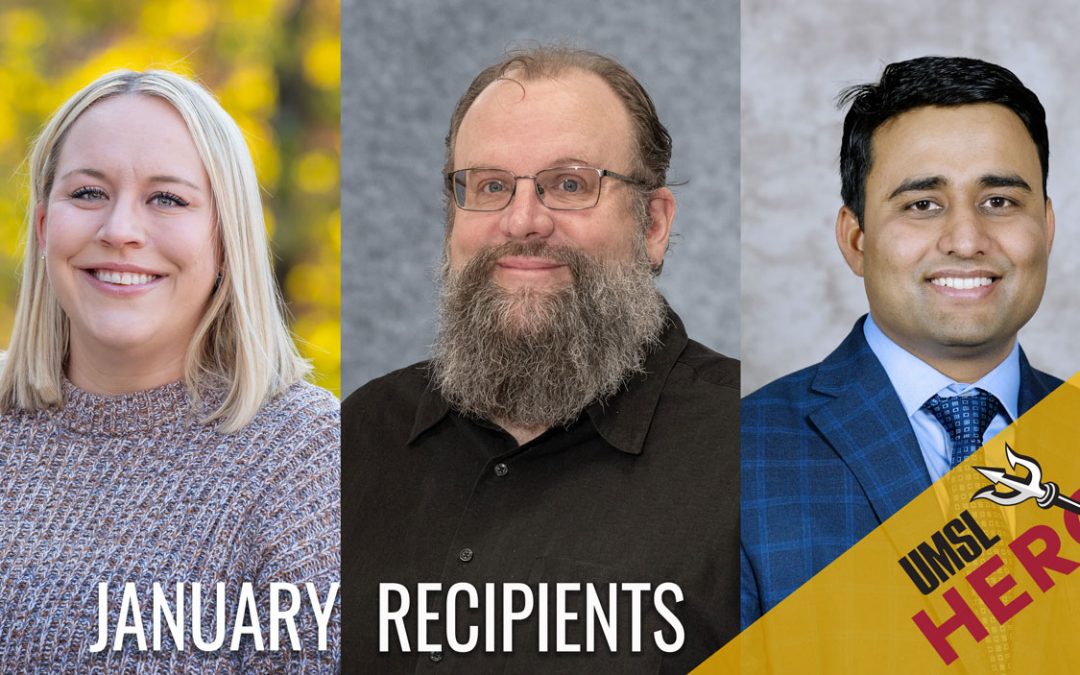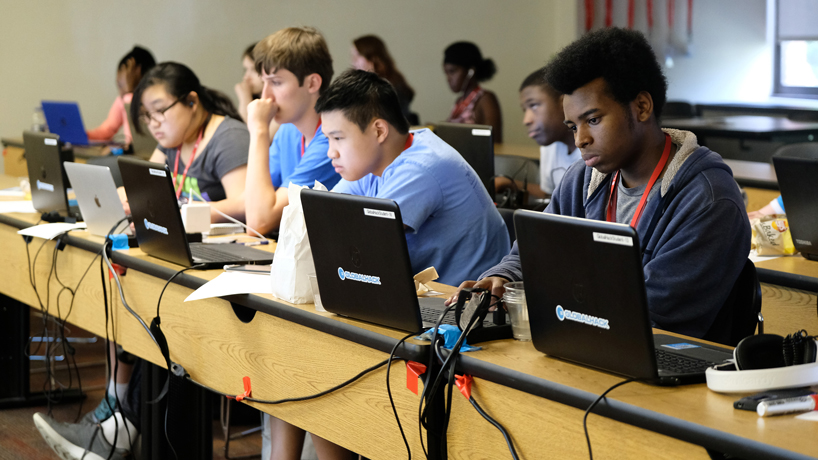
Lauren Xie (front row, from left to right), Joshua Wolk, William Xie and Kris Daniels work on their individual projects in the Mobile App Development course. (Photos by August Jennewein)
As Beth Casagrand, director of youth programs for GlobalHack, strolls the increasingly familiar halls of the Social Sciences and Business Building, she is greeted by students as young as 10 eager to discuss their latest coding projects.
Conversations range from the website students created to list their favorite hobbies to their growing knowledge of programming language.
Just listening to middle school student Yuvan Chali articulate the differences between various coding tools brings a smile to Casagrand’s face.
“We’ve learned about HTML, CSS and JavaScript and how each does different things,” Chali describes. “With HTML you can add text, images and links. CSS organizes them, and through JavaScript you can add functions.”
GlobalHack summer camp participants show an understanding of a field often approached with a bit of hesitation.
Casagrand along with colleagues at GlobalHack and the University of Missouri–St. Louis are working to challenge that hesitancy by developing a coding-literate generation. They partnered for an eight-week summer camp on UMSL’s campus that introduces middle and high school students to information technology through specific courses on web development, coding and game design.
With a desire to educate all area residents, particularly underserved youth, the weeklong camps offer full scholarships to half of the students. Families also have an opportunity for transportation assistance through taxi pickups at local schools or MetroLink passes.
“Dean Charles Hoffman and I were happy to partner with GlobalHack to make the camp accessible to as many students, regardless of their family income or ability to come to campus,” said Dinesh Mirchandani, chair of the Department of Information Systems in the College of Business Administration. “I am glad that we’ve found a good partner – one that has the skill set, that has the same philosophy and is able to provide a camp that we are both proud of.”
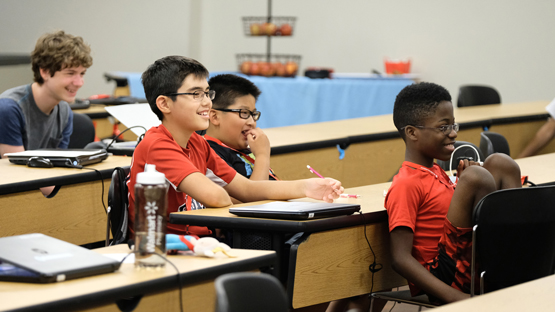
Owen Painter (at left), Evan Gegg, Jacob Yn and Andre Neal listen to instruction in the Designing Mobile Apps course.
More than 400 students will participate in one of the 16 courses from June 5 to August 4.
Will Smith, one of the camp’s lead instructors and a UMSL alumnus, said he is learning alongside the students. With a military background and limited teaching experience, he’s tested himself to find innovative instruction methods.
“Overall, it’s been a very good, very pleasurable experience,” Smith said. “I enjoy working with the kids. The middle school students are eager to jump in and try things. I really like when they begin to understand a concept and the light clicks on. That’s the main reason why I did this – as long as they get some sense of accomplishment out of this and possibly continue to code in some form.”
The curriculum, which was written by GlobalHack, gives students hands-on experiences with information technology while accommodating a variety of skills and backgrounds.
“I believe that students will take away the ability to reason with facts and think logically,” Mirchandani said. “Technology education gives us that ability because it’s so vast that we have to find bridges that connect areas that we understand. Then we can use those skills to learn newer technologies as they evolve.”
Although the average lifespan of technology is not more than a few years, the concepts students learn this summer will have a lasting impact.
“Regardless of what field you go in to, we feel like both the hard and soft skills that they’re learning through coding – whether that be project management, critical thinking or math skills – they will apply,” GlobalHack Executive Director Matt Menietti said. “Granted, we do want some of these children to become software developers, but if they are doctors, scientists, mathematicians or professors with at least a baseline understanding of computer science and software, we believe that they will be more well rounded in a society that continues to be more influenced by technology.”
As the reach of technology increases, many underrepresented groups still face social and structural barriers in information systems education.
“That’s something that we purposefully tried to combat when we created this program,” Casagrand said. “I think we’re really unique in trying to keep the price point low even for our fully-paid spots. We were very strategic in the way that people hear about the camps, making sure that it’s accessible and that it appeals to a range of interests and all levels of diversity.”
While limited seats are available, registration is still open for the remaining camps.





